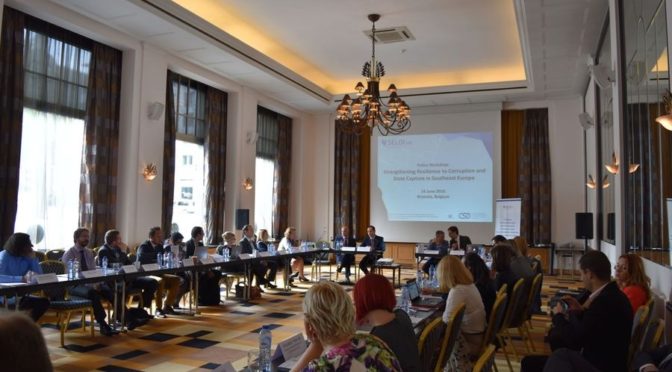The past year has vividly exposed governance vulnerabilities in Southeast Europe and how they threaten to undermine the region’s European perspective.
The migration crisis, the economic stagnation, and the Russia-EU geopolitical stand-off have shown the need to reinvigorate the European Union’s engagement with the region.
A critical part of this engagement remains the need to reduce corruption and state-capture vulnerabilities in Southeast Europe, in particular in the energy sector.
At a policy workshop on 14 June 2016, SELDI, the largest anti-corruption coalition of civil society organizations in the region presented to the policy community in Brussels the results of its 2016 Corruption Monitoring System in SEE and its ideas for counter-measures.
The participants underlined that having good laws and institutions are good first steps, however they need to be accompanied by political will and change of mentality.
The countries from Southeast Europe need to focus not only on the fight against corruption, but also on making institutions efficient, as recommended by Mr. Andrey Kovatchev, Member of the European Parliament, Committee on Foreign Affairs.
It is important to create a new generation that is educated in democratic values. Anti-corruption education is underestimated and should start at the school level.
People should not believe the populistic propaganda, which makes the EU integration process even slower, as was seen in the case of Macedonia.
It is encouraging that most people from the region see corruption as a problem and still recognize the need for EU support, despite the delay in EU enlargement.


